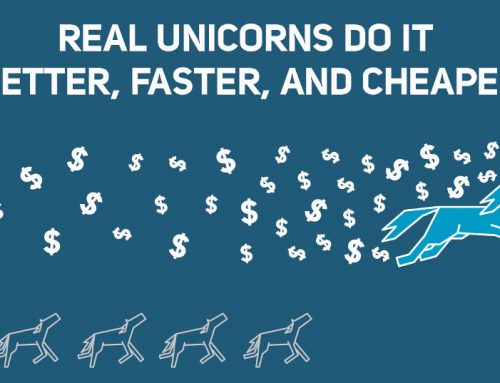We are not vegans, but we have been eating a plant-based diet for nearly twenty years. Our reasons for this have been based on health and moral concerns. Study after study show that meat consumption leads to an increased risk of heart disease, stroke, diabetes, cancer and obesity, among other diseases. And, the horrible treatment of animals in the mass production of meat products is well-documented.
Thirty years ago, those who cared enough to learn of such matters knew about the destruction of the Amazon rainforest, the most biodiverse habitat on the planet, to make way for cattle ranches. And, it was no secret that the vast majority of beef grown there was destined for North American fast food chains. Back then, we did what we could by not eating at such places. We also supported organizations like the World Wildlife Fund by “buying” acres of the rainforest and gifting them to friends.

Vegetable Vendor in Mysore, India
But, in the past thirty years, another environmental threat has emerged that will affect the habitat of billions of the “most important” species – humans. Climate change is not some leftist hoax perpetuated to destroy capitalist economies. It has been a reality since the first lump of coal was burned at an industrial level. And the destruction of forests, that convert carbon into oxygen, has only accelerated in that time.
Fresh water and arable land are dwindling resources. Nonetheless, vast quantities of these assets are squandered to grow meat. They could be utilized much more efficiently by feeding fruits and vegetables to a burgeoning human population. The scarcity of resources and their allocation is the basis of modern economic theory. Ironically, we ignore this when it comes to the sustenance for survival.
The Case for Veganism
A meat-based diet for the world’s population is unsustainable. According to a United Nations Environment Program 2010 report, animal products in general require more resources and cause higher greenhouse gas emissions than plant-based alternatives. The statistics cited in the report are almost ten years old, but are still quite staggering. Agriculture, particularly meat and dairy, accounts for 70% of global freshwater consumption, 38% of the total land use and 19% of the world’s greenhouse gas emissions.

Weighing in at Shaping, China
The report also states that “it is expected that by 2050, nine to ten billion people will populate the Earth – a growth of 50%. Impacts from agriculture are expected to increase substantially due to population growth, increasing consumption of animal products.
Unlike fossil fuels, it is difficult to look for alternatives: people have to eat food. A substantial reduction of impacts would only be possible with a substantial worldwide diet change, away from animal products.”
Evan Fraser, director of the University of Guelph’s Arrell Food Institute and Canada research chair in Global Food Security, recently said, “For a growing population, our calculations suggest that the only way to eat a nutritionally balanced diet, save land and reduce greenhouse gas emission is to consume and produce more fruits and vegetables, as well as transition to diets higher in plant-based protein.”
Another study by the same university found that to feed future generations an additional gigahectare of land (about the size of Europe or Canada) will be required to produce enough food. Yet, a switch to a plant-based diet, and growing fewer grains to feed livestock, would result in less land, water and fewer resources required for everyone to eat a balanced diet.
The Protein Myth and Absurdity of Milk
If you tell some that you’re a vegan, usually the first question they ask is “How do you get your protein?” Anyone who asks that question has been brainwashed by government dietary guidelines sponsored by the food-industry. Firstly, humans do not need nearly as much protein as we have been led to believe. Secondly, we need look no further than the wide variety of nuts, beans and other legumes to find the answer to that question.

Pickled Vegetables in Marrakesh
Like most other things that supposedly keep our economy ticking, suggesting that we need to consume meat to get the recommended amount of protein in our diets is absurd. Protein is essential for muscle development, and the meat we eat is an animal’s muscle. Yet cows, whose muscles are a staple protein, are herbivores.
More absurdity can be found in the human consumption of a cow’s milk. What other species on the planet consumes another’s milk? None, because it is unnatural and ridiculous.
Again, we have been brainwashed – this time into thinking that calcium can only come from a cow. The same vegetables that are high in protein are also high in calcium – soybeans, spinach, broccoli, etc.
Animal Welfare
The inhumane treatment of animals in factory farms is well known. Every once in a while, someone sneaks a video camera into one of these facilities, and exposes the cruelty these animals endure and the abhorrent conditions in which they live. These animals, much like the cats and dogs with whom we share our homes and lives, are sentient creatures that are no less deserving of compassion than any other being on the planet.
All high-school curricula should include, not only a shopping trip to the grocery store, but a visit to a factory farm where the bulk of the meat in the supermarket comes from. If we were serious about educating our youth, we wouldn’t shield them from the realities of their diets. But, the big meat producers know that if kids were exposed to the inhumane treatment of the animals and the manner in which the carcasses are processed, they would have to change their practices. This, of course, would drive down profits and stock prices which, we are told, our fragile economy could not withstand.

Bean Stalls in Mysore, India
However, despite the overwhelming evidence that a meat-based diet is bad for everyone and everything, we still consume large quantities of dead flesh at an alarming rate.
The main reason is that eating meat has been a big part of our cultural paradigm for centuries. And, it remains one of the “main food groups” on every government’s nutrition guides. This is why daily meals commonly include bacon with breakfast, a turkey sandwich for lunch, and steak for dinner.
Moderation
The most selfish reason for eating meat on a regular basis is “because it tastes good”. Anyone who thinks a vegan diet is boring and bland has never tried one. There is an abundance of amazing and simple vegan and vegetarian recipes available online and in bookstores.
The hardest thing we’ve cut out of our diet is cheese. Eggs are another staple we cut out. But, recently we have reintroduced eggs into our diet. We make sure that we know where our eggs come from, and the conditions in which the chickens live. And, we don’t eat nearly as many as we used to.

Dates and Figs in Istanbul
That’s the thing about diet – everything should be in moderation. Unless we’re traveling through South Asia, a vegetarian diet – let alone a vegan one – is nearly impossible to maintain. Refusing a meat dish from a poor family will almost definitely be taken as an insult.
And, good luck getting by without meat and dairy in Latin American restaurants. Besides that, there are many excellent meat-based regional dishes that should not be missed.
However, as all humans have done throughout their history, we have adapted. Now, certain things are an occasional treat rather than a daily staple. Diane’s delicious spanakopita is something we eat only every once in a while. If we know the beef comes from an organic farm where cows are allowed to graze freely on grass (their natural diet), we just might order a burger. Or, even more decadently, a cheeseburger.
Gradual Veganism
If we know our behavior is causing harm to ourselves and/or others, we must modify that behavior. Otherwise, we ignore our conscience and must face the mirror every day knowing so. However, life is not, and cannot be, about intransigence and extremes. Therefore, it is not unreasonable to suggest easing into a plant-based diet.
“I tried to amend my carnivorous habits.”
– Jimmy Buffett
One idea would be to start eating fruit salad for breakfast on weekdays. Top it with a dollop of yogurt for the first few weeks, then wean yourself off that a couple of days a week until you don’t need it anymore. Similarly, a strategy like “Meatless Mondays” is a good way to begin. Eventually, this could be extended to every weekday. Or, forgo meat at lunch to start, and slowly include every other dinner. Put enough condiments on a burger, and you won’t be able to tell if the patty is made from meat or vegetables.

Diane selects some produce at a fruit stand in Mysore, India
The point is that any reduction of meat consumption is better than none. Think about the how the food on the menu or in your shopping cart was produced, and base you consumer decisions accordingly. Multinational food corporations do not listen to governments – they own governments. But, they will listen to the marketplace and their customers. So, let your conscience guide you, and help make the planet a better place for all creatures to enjoy life on it.






Leave A Comment